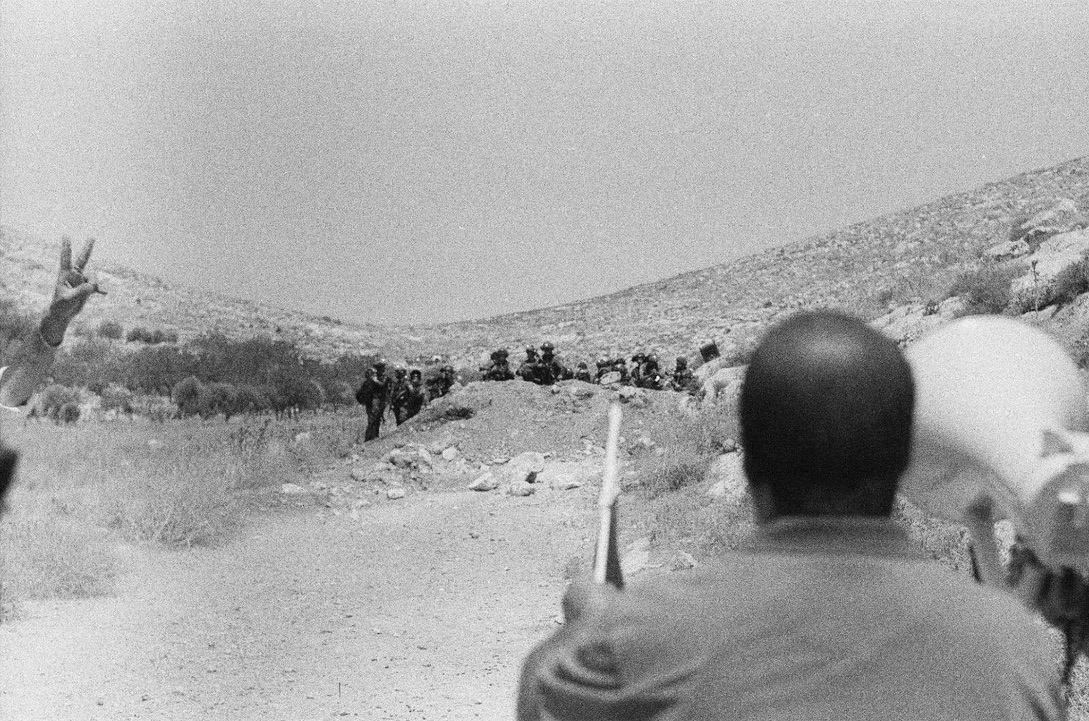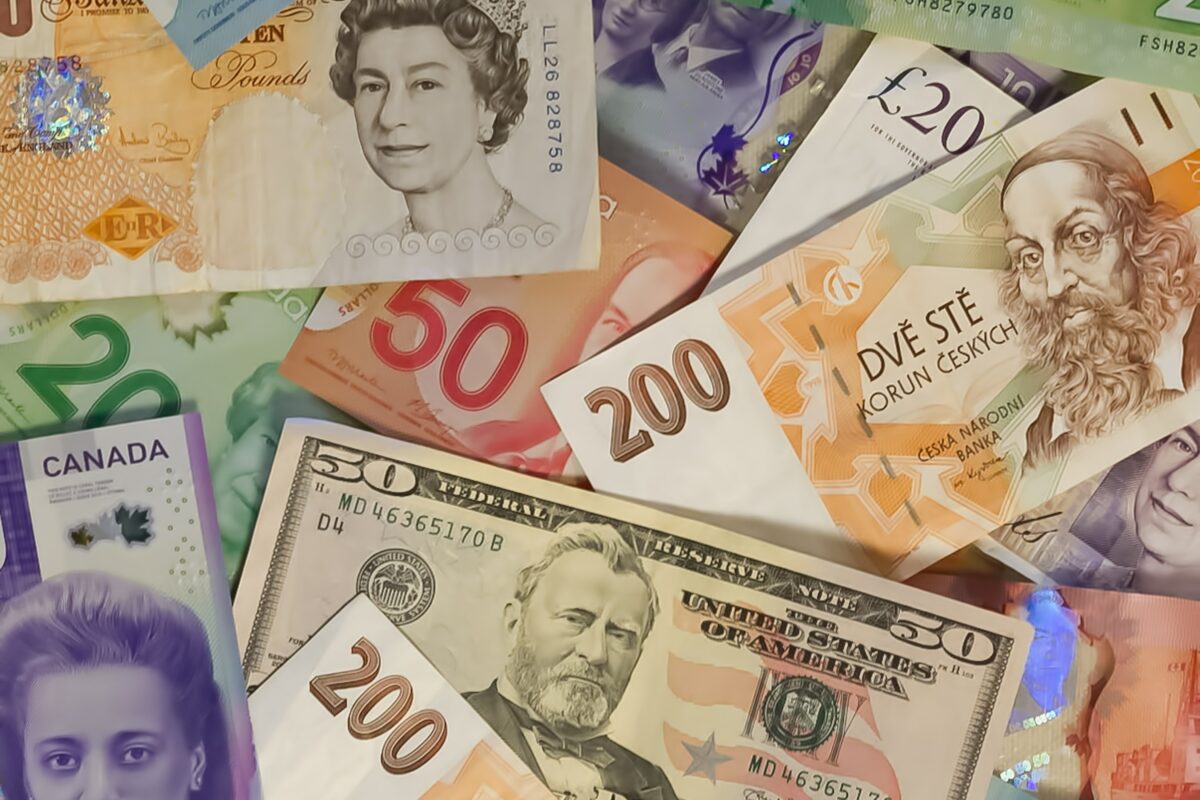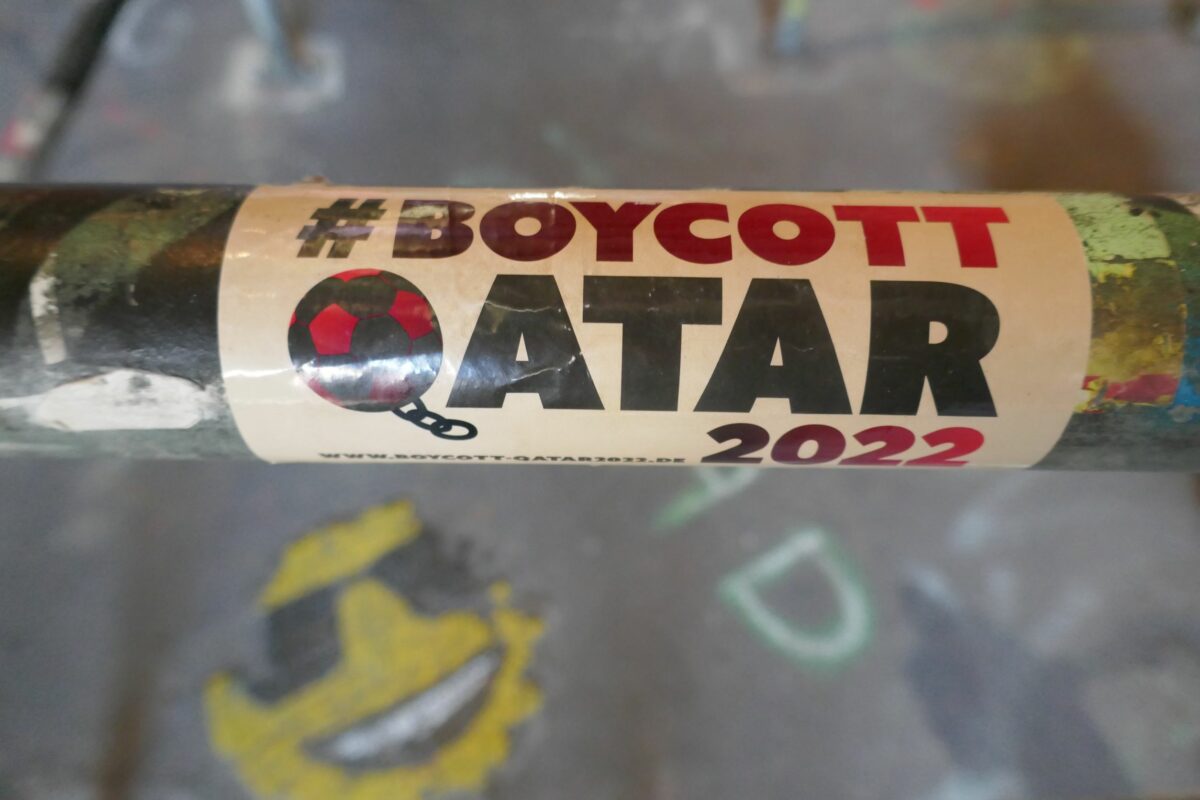The 2022 World Cup in Qatar is a tournament unworthy of football. So many rules of both sporting and political fairness are being violated that it seems irresponsible to take part in this event, whether as an active athlete, official or just as a TV viewer.
Therefore, we think it is important that football fans protest against the tournament in Qatar and against FIFA’s policies. Please support our initiative #BoycottQatar2022 through your own discussions, actions, events – and last but not least through your support for our call to action.
The following call to action has so far been supported by about 100 groups and several thousand individuals (as of the end of September 2022). You can add your support here:
The 2022 football world cup in Qatar is a project unworthy of football, because it violates the fairness imperative of sport and politics. Hence, we consider it to be irresponsible to participate in the event, whether as an active player, as an official, or as a TV spectator.
THE ABSENCE OF HUMAN RIGHTS
FIFA claims to take human rights seriously. In a May 2017 decision FIFA declared: “FIFA strives to create an environment free of discrimination both within its organization and in all its activities”. According to article four of FIFA statutes this includes the rejection of any kind of discrimination related to religion, gender or sexual orientation. Homosexuality is illegal in Qatar, women are discriminated against by law, and the abjuration of Islam is a capital crime. FiFA’s decision pro Qatar is consequently irreconcilable with “an environment free of discrimination”.
Visitors to the world cup face sanctions if they identify as homosexual or queer, or wear inappropriate clothing such as shorts or strapless tops.
INFERIOR WORKING CONDITIONS
Facilities for the football world cup are being built mainly by migrant workers who drudge under inhuman conditions. They live in substandard housing, are sometimes cheated out of their wages, and work in inferior conditions. They are denied the right to terminate their contracts themselves, and in some cases they were not given leave to even visit their home countries. Several reports claim that several hundred workers have died on the construction sites.
FIFA has officially demanded an improvement of these conditions.
Human rights organizations such as Amnesty International have asserted, however, that this did not result in effective improvements.
NO FOOTBALL CULTURE
Qatar lacks a historically evolved football culture including traditional clubs and an established fan base. Football here is mainly an artificial implant bred by money, and the new stadiums amount to Potemkin villages. Most of them will be partly or completely dismantled after the world cup because homegrown football in Qatar does not need them. It is noteworthy that the Al-Shamal world cup stadium seats 45,000 in a town of only 11,000 people.
COMMERCE INSTEAD OF FOOTBALL
The decision to select Qatar as the site of the 20022 football world cup was taken on commercial grounds and was not based on athletic considerations. Qatar considers the football world cup the culmination of its investment into developing sports as a major national business focus. FIFA, in turn, aims at opening new markets for football in Islamic countries.
Qatar is a compliant partner who will autocratically implement FIFA’s sponsor- and profit-oriented policies. Qatar 2022 will be another example of the internationally emerging tendency to award the most popular big sport events – football world cups and Olympic games – to authoritarian or dictatorial states because the exaggerated demands of FIFA and IOC become increasingly unacceptable to democratic societies.
SUSPICION OF CORRUPTION
The award of the 2022 football world cup to Qatar has been accompanied by rumors of corruption. Several reputable media outlets report that several millions of euros have been paid out as bribes prior to FIFA’s decision pro Qatar. It is possible that these allegations will only be substantiated at a time when it will be impossible to revoke the award of the world cup to Qatar. This would give prestige to a country that is alleged to have obtained the award by means of bribery.
OUR DEMANDS
As football fans we do not live in cloud-cuckoo-land. We are aware that commercial interest and manipulation have been part of football since its pioneering days. These are facts of life we have to live with. However, there are situations when critical commentaries are not enough, when a stance has to be taken. The football world cup in Qatar is such a case, too many principles have been violated. There still is time for FIFA and its member organizations to reconsider, to revoke the decision pro Qatar and to ask another country to host the world cup. Unfortunately, it is very unlikely that this will happen.
It would be the duty of the DFB (German Football Association) to send the right signals. The clearest and most decisive option is for the Germany to withdraw from participation in the world cup as was proposed by the former president of DFB, Reinhard Grindel. If the DFB does not do this, then at least a comprehensive justification of this decision should be given. The DFB needs to take a resolute stance on the human rights situation in Qatar. Furthermore, it should financially support those human rights organizations and fan groups that critically question the action of the government of Qatar in this matter.
Athletes and coaches of the national team are dedicated to football would very much like to participate in the world cup. Nevertheless, they could support statements and campaigns critical of Qatar’s actions in aquiring the pro-Qatar decision of FIFA, and of the inhuman treatment of the migrant workers effectively building the stadiums.
TV stations and other media reporting from the world cup in Qatar should dedicate significant airtime to report on the political and human rights problems of the country.
German companies should abstain from any marketing campaigns linked to the world cup and from selling licensed products. They should not buy airtime for commercials.
ORGANIZE RESISTANCE
As football fans we want to manifest our resistance to a football world cup in Qatar. We will use discussions and statements to highlight the ignoble conditions surrounding the world cup in Qatar and the indifference of FIFA. Furthermore, we state
- That we will send FIFA mass mailings to promote our protest
- That we will not buy any products bearing the world cup logo
- That we will not buy any product from companies actively sponsoring the football world cup
- That we will not travel to Qatar, and
- That we will also not participate in any public broadcasts of the games
It is our goal to interfere with the lucrative interaction of FIFA and sponsors with the undemocratic, authoritarian regime of Qartar. It should not remain attractive for anybody to organise a football world cup in such a perverted way, which will lead to the ruin of the game we love.
A 16-page brochure presents the aims, reasons and ideas of our campaign in a compact way. You can download it here for free.




